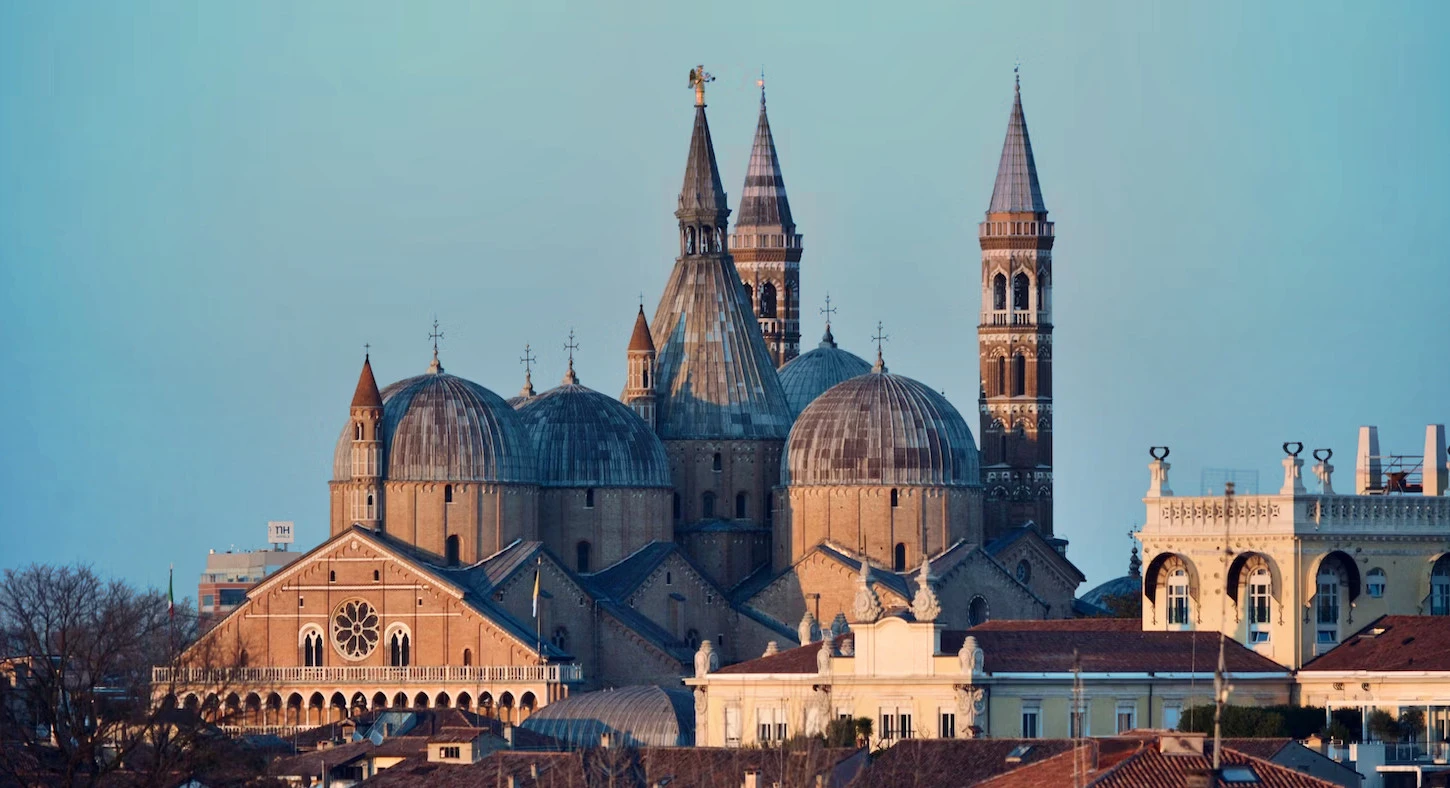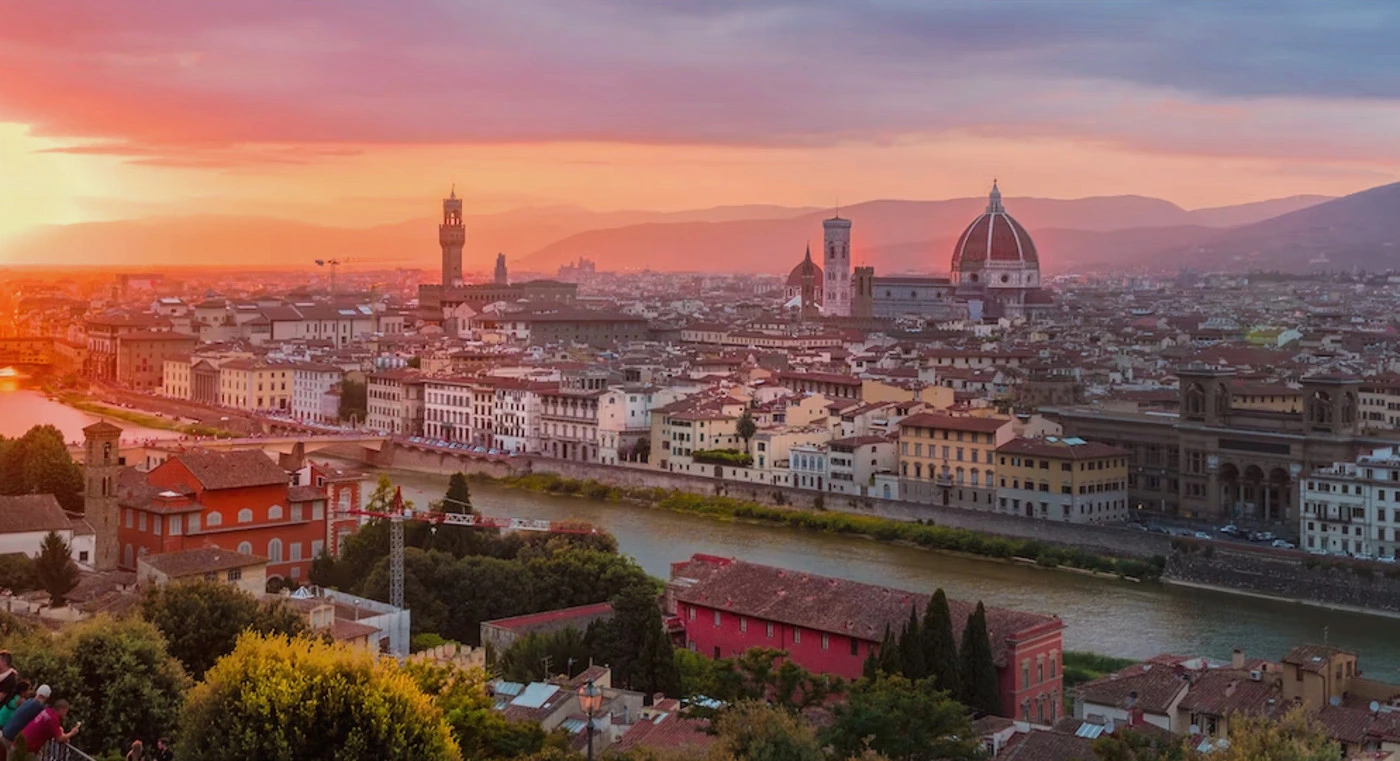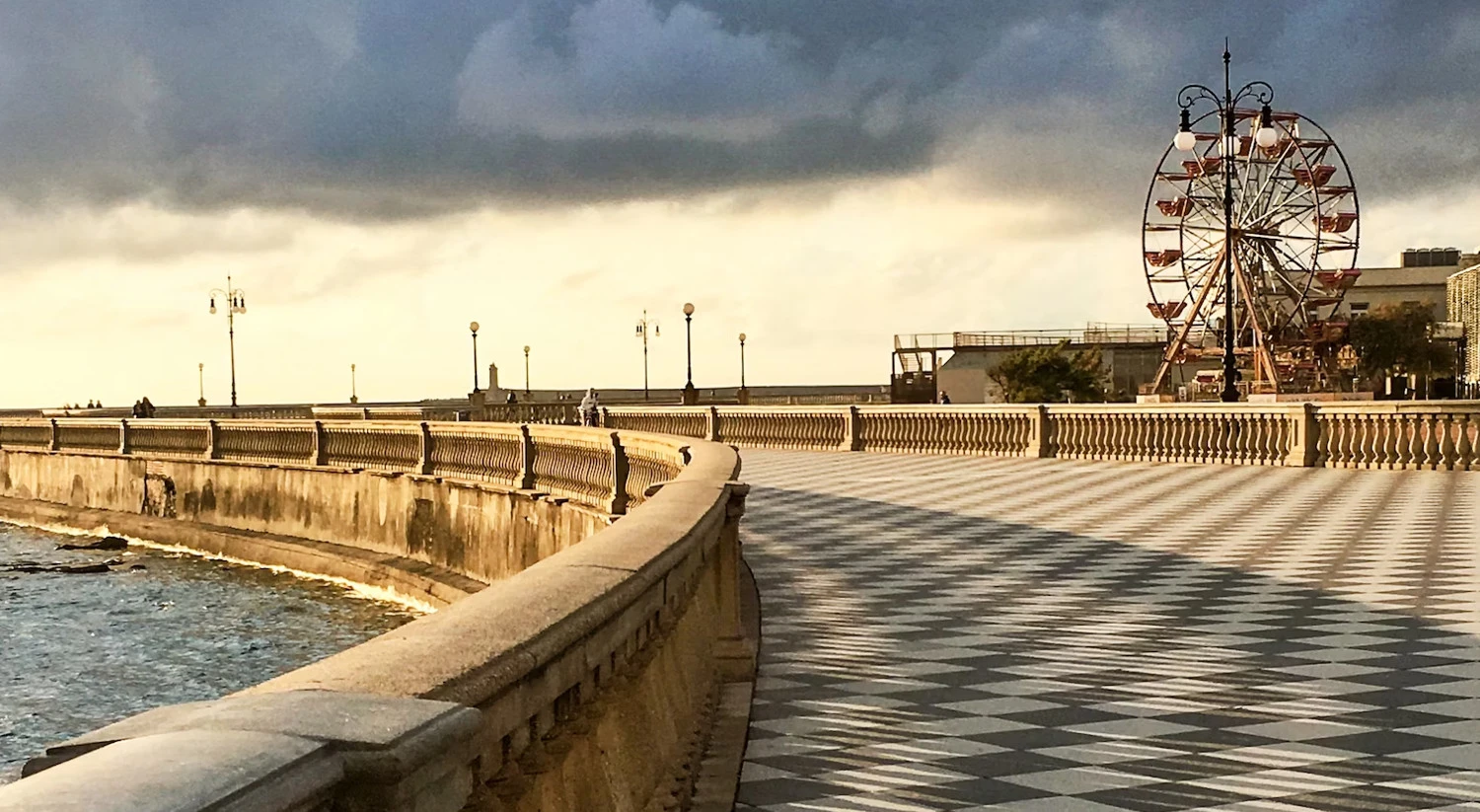Living in Lucca
Lucca is a medieval city in the region of Tuscany, Italy.It is the capital of the province of Lucca, with about 88,000 inhabitants.
Lucca is famous for its intact Renaissance walls that encircle the historic center, and for its many churches, towers, and palaces.
Lucca was an independent city-state for centuries, and preserved its autonomy and culture until the Napoleonic era.
Living in Lucca as an expat can be a chance to experience the charm, the art, and the history of this unique city, but also to deal with some difficulties, such as the high cost of living, the bureaucracy, and the language barrier.
Lucca is the fourth most populous city of Tuscany, after Florence, Prato, and Livorno.
It is also the core of the wider Lucca metropolitan area, which has about 162,000 people.
Lucca is a cultural and artistic center, with a rich heritage of monuments, museums, and festivals.
It is also a tourist destination, attracting visitors from all over the world with its beauty and atmosphere.
It has a GDP of about €6 billion ($7 billion), making it one of the most prosperous cities in Italy and Europe.
Search for:
What is Lucca like?
Lucca is a city with a long and diverse cultural history, influenced by its role as a crossroads of civilizations, religions, and arts.It is home to some renowned figures, such as Giacomo Puccini, Luigi Boccherini, Carlo Collodi, and Alfredo Catalani.
Lucca is also known for its distinctive cuisine, which includes dishes like buccellato (a sweet bread), farro soup, and tordelli (a type of ravioli).
Some of the most popular cultural events in Lucca are the Lucca Comics and Games (a comic book and gaming festival), the Lucca Summer Festival (a music festival), and the Luminara di Santa Croce (a religious procession with candles).
Some of the most important cultural attractions in Lucca are the Lucca Cathedral, the Guinigi Tower, the Palazzo Pfanner, and the National Museum of Villa Guinigi.
Climate
Living in Lucca means experiencing a warm and temperate climate, with four distinct seasons.In the summer, it’s hot and sunny, and you can enjoy the city and its surroundings.
In the winter, it’s cool and rainy, and you can admire the historical and artistic heritage.
The spring and the autumn are mild and variable, with some rain and some sun.
You can see the flowers and the fruits, and enjoy the festivals and the events.
Lucca is quite sunny and rainy by Italian standards, but it still has some windy and stormy days, especially in autumn and winter.
The weather can be changeable and unpredictable, so you need to be prepared for anything.
Economy
Lucca is a city with a mixed and balanced economy, based on sectors such as tourism, commerce, industry, and agriculture.It is one of the main tourist destinations in Italy, with about 3 million visitors per year.
It is also a center for trade and services, with a large and diversified retail sector.
It has a strong industrial tradition, with activities such as paper production, textile manufacturing, engineering, and food processing.
It is also a leader in the production of extra virgin olive oil and wine.
It is also a city with a high quality of life, with a low unemployment rate, a high level of education, and a good health system.
However, it is also a city that faces some challenges, such as the aging population, the environmental impact, and the competition from other cities.
Lucca is one of the most prosperous cities in Italy and Europe, but it also needs to adapt to the changing times and needs of its citizens.
Education
Lucca is a city with a long and rich history, dating back to the Etruscan and Roman times, and preserving many monuments and artworks from the Gothic and Renaissance periods.It has several public and private schools, offering a variety of courses and degrees, from primary to secondary education.
Some of the most renowned and prestigious schools in Lucca are the Liceo Classico Niccolò Machiavelli, the Liceo Scientifico Antonio Vallisneri, and the Liceo Artistico Passaglia.
The city also has some higher education institutions, such as the IMT School for Advanced Studies Lucca1, the University of Pisa branch2, and the Lucca Italian School3.
Some of the most popular and reputable higher education institutions in Lucca are the IMT School for Advanced Studies Lucca1, which is a public research institution and a graduate school that focuses on the analysis of economic, societal, technological and cultural systems, the University of Pisa branch2, which offers courses in engineering, architecture, and humanities, and the Lucca Italian School3, which is an alternative way of studying the Italian language and culture in Lucca.
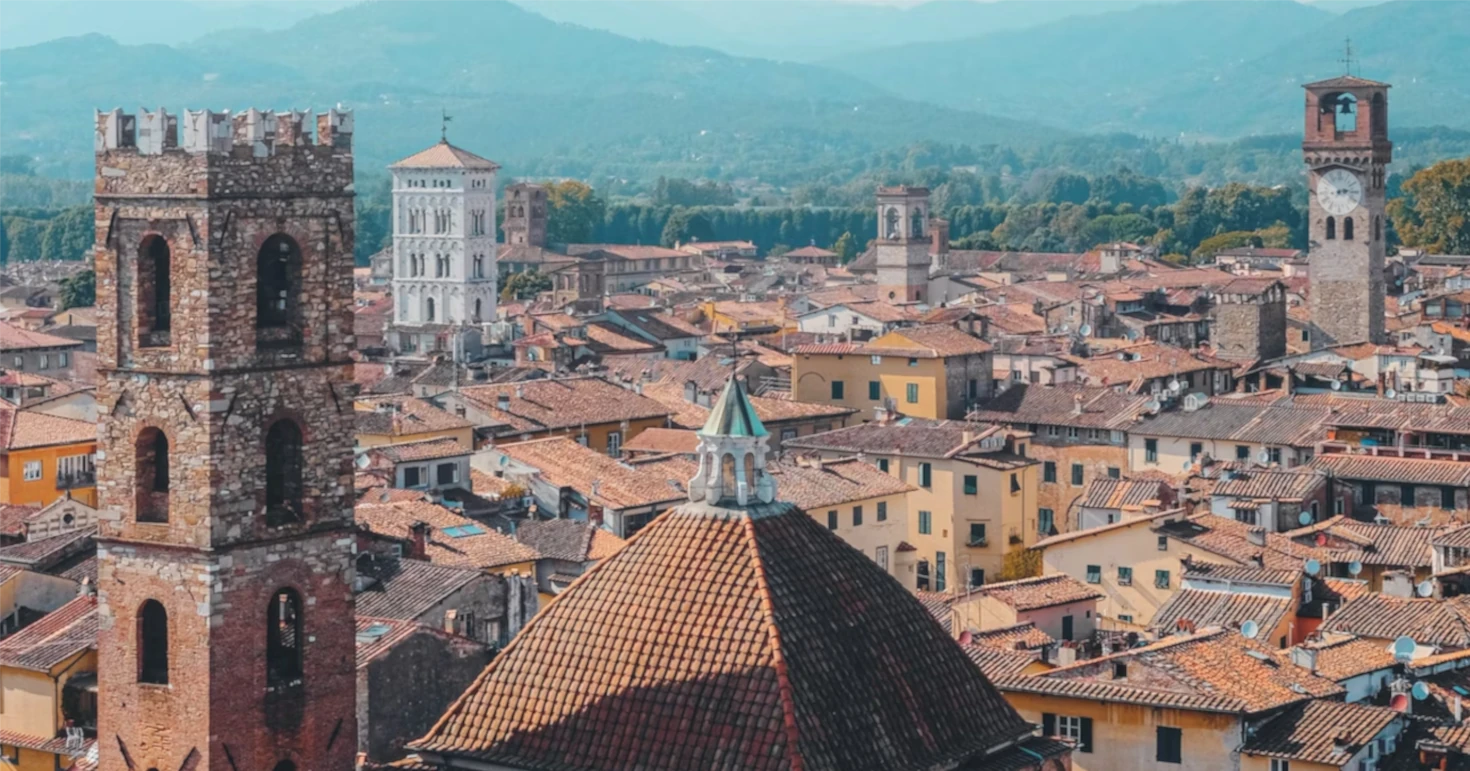
Cost of living in Lucca
The cost of living in Lucca is high compared to other Italian cities. It is more expensive than Livorno, Pisa, Bologna, and Naples, but cheaper than Florence, Milan, Venice, and Rome.A family of four estimated monthly costs are €3,072 without rent, and a single person estimated monthly costs are €1,544 without rent.
Rent in Lucca is also high, especially in the city center.
For example, a one-bedroom apartment in the city center costs about €700 per month, while a three-bedroom apartment costs about €1,200 per month.
The prices of food, transportation, utilities, and entertainment are also higher than the national average.
Is Lucca safe?
Lucca is a fairly safe city for tourists and expats, with a low crime rate compared to other major cities in Italy and Europe.However, some precautions are recommended, especially in certain areas and situations.
The most common crimes in Lucca are pickpocketing, bag-snatching, scams and vandalism, which usually target crowded and touristy places, such as the city walls, the market, and the city center.
To avoid these risks, it is advisable to be vigilant and careful, to keep your valuables close and secure, to avoid suspicious or aggressive people, and to report any incident to the police.
Lucca is also generally safe at night, but it is better to avoid walking alone in dark and isolated streets, and to stick to the well-lit and busy areas.
Pros and cons of life in Lucca
| Pros | Cons |
|---|---|
| Charming and historical city | Hot and humid city |
| Proximity to the countryside | Expensive housing |
| Excellent food and wine | Language and culture barriers |
| Good public transportation | Crowded and touristy |
| Calm and peaceful city | Lack of diversity |
| Low cost of living | Low work and opportunities |
| High quality of healthcare | Bureaucratic and corrupt system |
| Diversified and stable economy | Less cosmopolitan and multicultural atmosphere |
Advantages of Living in Lucca
Overall, Lucca is a charming and historical city, with a well-preserved Renaissance heritage and a unique circular shape.You can explore its many attractions, such as the Lucca Cathedral, the Guinigi Tower, the Piazza dell’Anfiteatro, and the city walls, and immerse yourself in its culture.
It is also a gastronomic city, with many local specialties and wines, such as tortelli lucchese, tordelli versiliesi, buccellato, and vernaccia.
The city has a good public transportation system, which makes it easy to get around and to other parts of Tuscany and Italy by bus and train.
Not only that, but you can also enjoy its proximity to the countryside, where you can have scenic views and easy access to hiking and biking opportunities.
Lucca is a calm and peaceful city, where you can meet people from different countries, cultures and backgrounds, who contribute to the city’s social and cultural life.
Italian is widely spoken here, but you can also find people who speak English, French, and other languages, which makes it easier for you to communicate and find work.
The city has a diversified and stable economy, which offers you many opportunities for work and career development, especially in sectors such as tourism, commerce, agriculture, and handicrafts.
Lucca has a moderate cost of living, which makes it more affordable than other Tuscan cities, and a high quality of life, with excellent education, healthcare, and social services, which ensure your well-being and happiness.
Disadvantages of Living in Lucca
Lucca can be hot and humid to live in.You can face difficulties in finding affordable housing, especially in the city center, where the prices are high and the availability is low.
You can also encounter problems with the language and culture, as Italian is not easy to learn and the locals can be conservative and traditional.
The city can be crowded and touristy, with traffic and noise, which can affect your health and environment.
Lucca is not very diverse, and the expat community is small and scattered.
You can also have trouble finding work and opportunities, as the economy is not very dynamic and the competition is high, especially for foreigners.
Moreover, the city can have a bureaucratic and corrupt system, which can be frustrating and annoying, especially for expats, who have to deal with a lot of paperwork and regulations.
In addition to that, compared to other parts of Italy, Lucca can have a less cosmopolitan and multicultural atmosphere, which can make it dull and boring for some people.
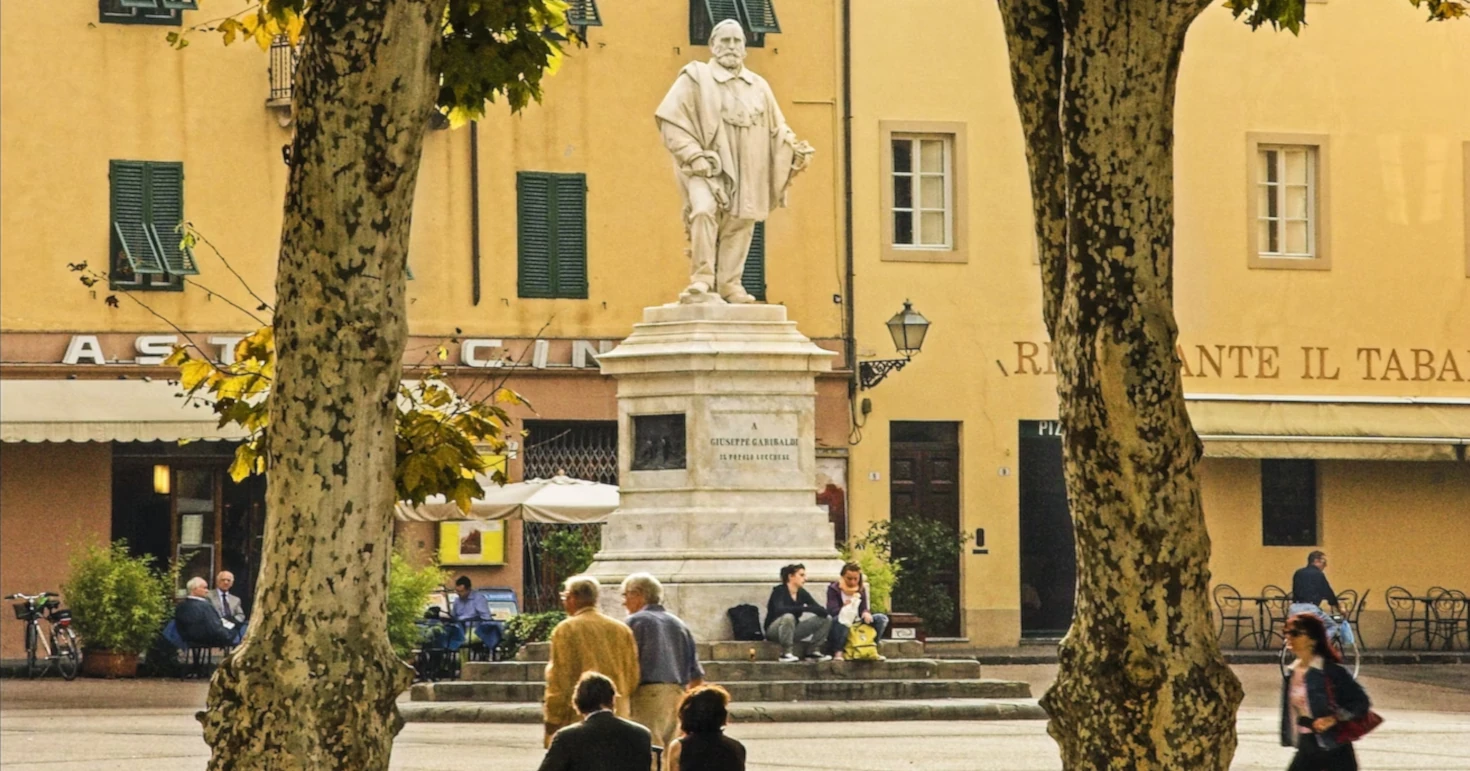
FAQs
What is Lucca like for foreigners?
Lucca is a charming city on the Serchio River, and one of the most well-preserved medieval towns in Italy and Europe.It is the capital of the province of Lucca, in the Tuscany region, central Italy, on the plain of Lucca, north of Pisa.
It is a great choice for expats who love history and culture.
Lucca offers many attractions, such as the Lucca Cathedral, the Guinigi Tower, the Piazza dell’Anfiteatro, and the city walls, as well as a gastronomic food and wine culture.
Living in Lucca as an expat can be both enjoyable and challenging.
You can enjoy the benefits of a calm and peaceful city that offers a high quality of life, but you also have to deal with the drawbacks of living in a small and conservative city with limited opportunities.
What is Lucca like for students?
Lucca is an attractive destination for students who want to pursue their studies in Italy or abroad.The city has a long and rich history, dating back to the Etruscan and Roman times, and preserving many monuments and artworks from the Gothic and Renaissance periods.
Some of the most famous and prestigious academic institutions in Lucca are the IMT School for Advanced Studies Lucca1, the University of Pisa branch2, and the Lucca Italian School3.
Studying in Lucca means being part of a dynamic and international educational environment, a diverse and multicultural student community, a calm and peaceful trade and gastronomic scene, and a lot of opportunities for socializing and networking.
Lucca is also a charming and historical city, with many attractions, such as the Lucca Cathedral, the Guinigi Tower, the Piazza dell’Anfiteatro, and the city walls, as well as a gastronomic food and wine culture.
Lucca is a city that blends history and innovation, tradition and diversity, culture and education, making it one of the best cities to move to as a student in Italy.
What is Lucca like for women?
Lucca is a historical and artistic city, with a rich heritage from the Etruscan and Roman times, and the Gothic and Renaissance periods.It is a city that has produced and hosted many influential women who have contributed to various fields, such as music, literature, art, and science.
Women in Lucca can benefit from a beautiful and safe environment, a high level of culture and education, and a strong sense of community and participation.
However, women in Lucca also have to deal with some issues, such as unemployment, poverty, and sexism, that affect their rights and opportunities in society.
What is Lucca like for LGBTQ people?
Lucca is one of the most tolerant and respectful cities in Italy to live as a LGBTQ+ person, as it has a active and diverse queer community, with many associations, events, and initiatives for all tastes and preferences.The city respects diversity and equality, and has a progressive LGBTQ+ culture, with influential personalities, artists, and activists who advocate for LGBTQ+ rights.
Lucca is also a historical and cultural city, that stands out from other Italian cities for its charm and creativity.
It has a legacy of hosting important LGBTQ+ events, such as the Lucca Pride, the first Italian Transgender Day in 2016, and the first Italian Asexual Day in 2019.
Living in Lucca as a LGBTQ+ person means enjoying a high quality of life, a supportive and friendly community, and a lot of opportunities for culture and education.
However, Lucca is not a perfect city, and it still faces some issues and challenges related to gender and sexuality, such as discrimination, violence, and homophobia, that need constant work and awareness.
Is Lucca walkable?
Lucca is a highly walkable city, as it is surrounded by a ring of Renaissance walls that enclose its historic center.The public transport system is minimal and not very convenient, so walking is the preferred way to get around the city.
There are also some bike rental services and bike paths for cyclists.
The city has many cultural and historical attractions to visit on foot, such as the Piazza dell’Anfiteatro, the Duomo, the Palazzo Pfanner, and the Torre Guinigi.
There are also several parks and gardens, such as the Parco Fluviale, the Orto Botanico, and the Villa Reale.
Some challenges for walkers are the cobblestone streets, which can be slippery and uneven, and the traffic, which can be noisy and chaotic.
The city also has a ZTL (limited traffic zone), which restricts the access of cars to the city center.
